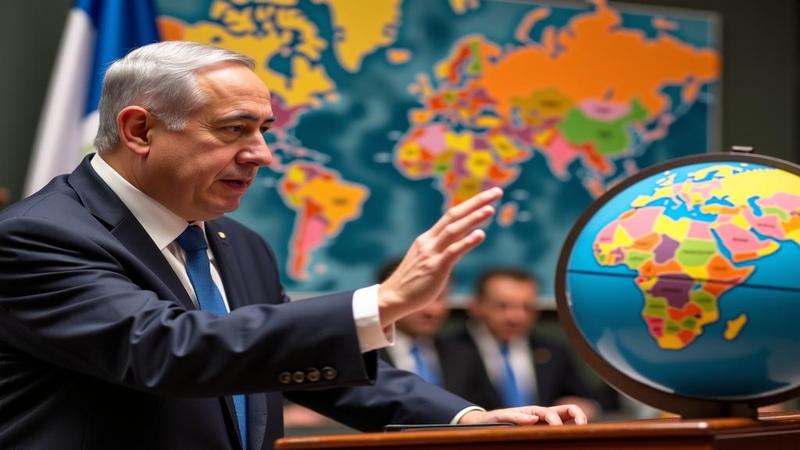Netanyahu Outraged Nations Recognize Thing That Already Exists, Demands Geography Apologize

In a landmark press conference, Benjamin Netanyahu condemned Western governments for recognizing a Palestinian state, alleging that cartographers were staging a coup. He demanded the immediate resignation of all globes.
He insisted recognition doesn’t change facts on the ground, then changed his tie to alter the facts of the tie. The move, he warned, was geography without due process and might cause maps to unionize.
An emergency cabinet session voted 12-0 to oppose adverbs and certain prepositions until morale improves. As deterrence, ministers unveiled a PowerPoint that never ends, the diplomatic equivalent of quicksand in slide format.
In Western capitals, leaders issued stern acknowledgments in 100 percent recyclable packaging. Europe nodded in fluent ambiguity, America stared at its shoelaces, and Scandinavia rolled its eyes in renewable energy for up to 20 gigawatts of sigh.
Back in Jerusalem, aides rummaged for border-proof permanent marker to underline the map until the Mediterranean blinked. They traced enough red lines that the lines applied for citizenship and asked for a weekend.
Spokespeople unpacked the diplomatic travel-size outrage kit, featuring a collapsible podium, spare indignation cartridges, and a velvet pouch of grave concerns measured by the ounce. Customs waved it through; gravity declined comment.

Asked whether this meant Israel would never recognize a Palestinian state, the Prime Minister showcased Schrödinger’s diplomacy: a state that simultaneously exists and does not until observed by an election. He then announced the Ministry of Silly Maps, where borders do a little dance and vanish at the sound of international law.
Meanwhile, nations experimented with recognition flavors: soft launch, beta access, and a decaf two-state solution with oat milk. The G7 promised a provisional birthday, complete with a cake you can only see from sea level.
At checkpoints and crossings, policy arrived like weather and left like rumor. Truckers followed timetables nobody wrote, and documents overtook convoys the way wind passes a parked idea.
Tech platforms tried to help by adding a small asterisk shaped like a diplomatic shrug to every map. A start-up offered sovereignty as a service, free tier supported by ads for patience and bulk bandages.
Markets briefly wobbled into a shape resembling a moral dilemma, then remembered their core competency was money and went for a brisk jog. Defense stocks did pushups; peace futures came with a sticker that read some assembly required.
By evening, Netanyahu reaffirmed that recognition changes nothing and ordered the clouds to stop recognizing rain. The clouds filed a strongly worded drizzle. Somewhere, a map committed the coup he feared by daring to be a map.
